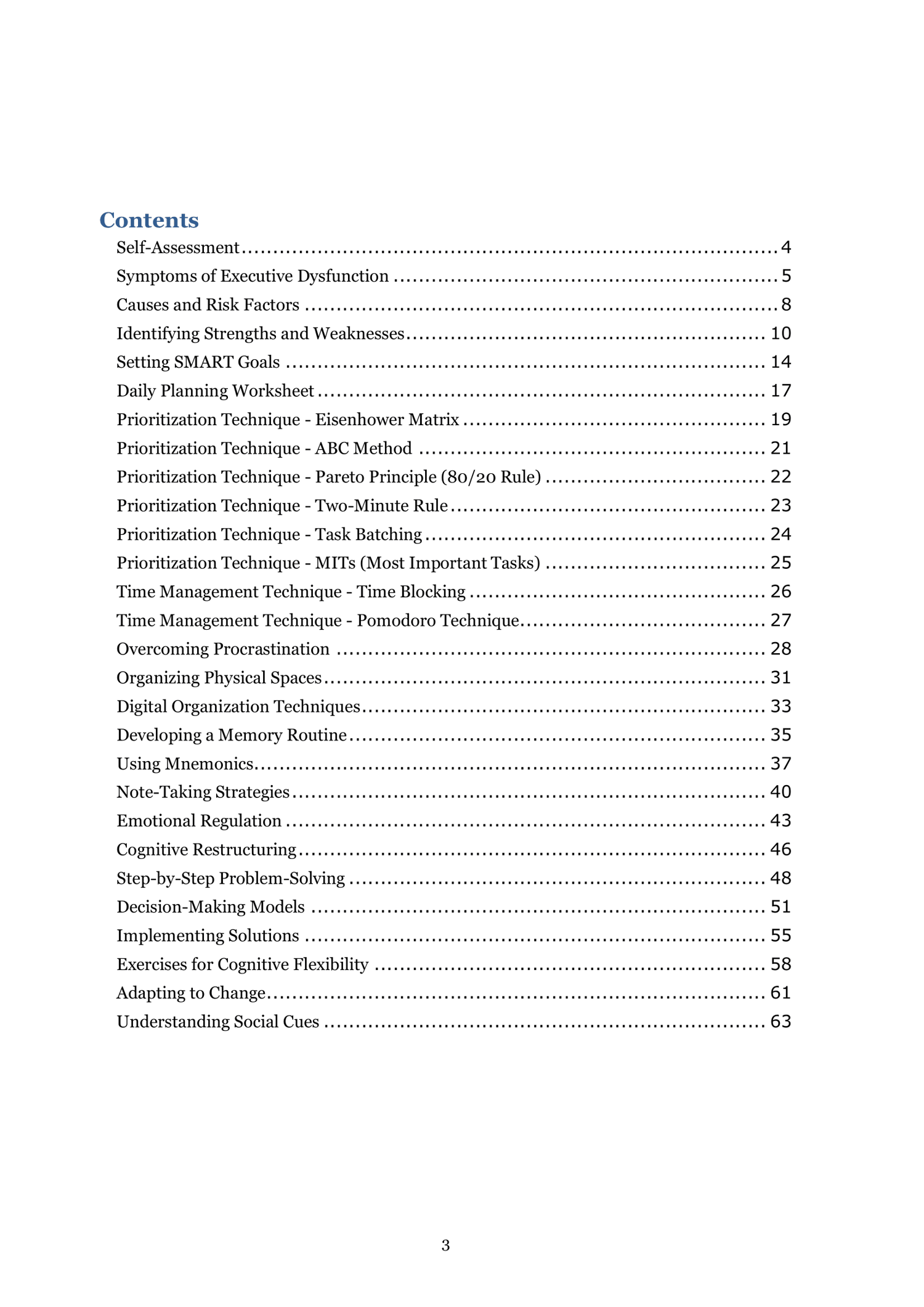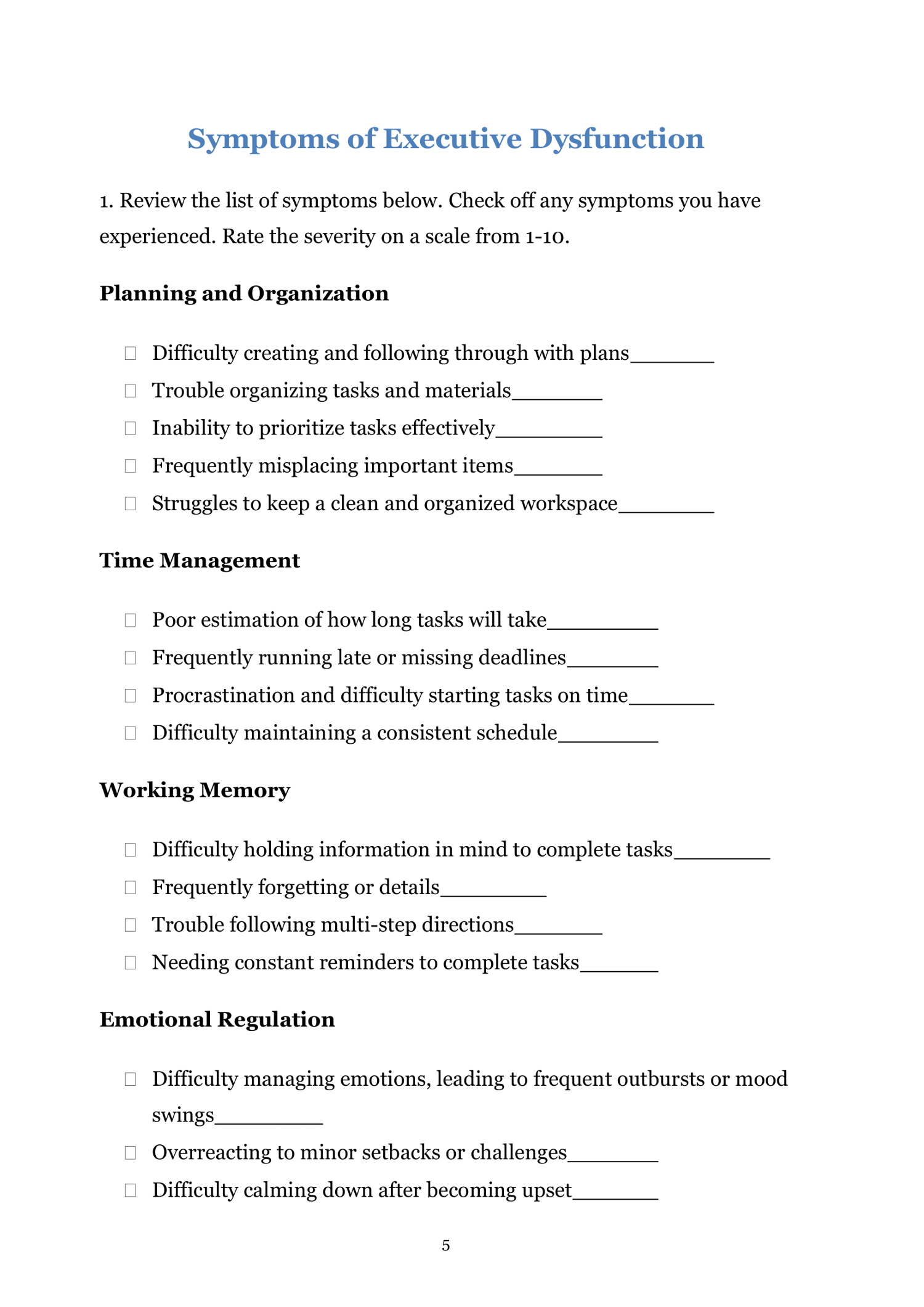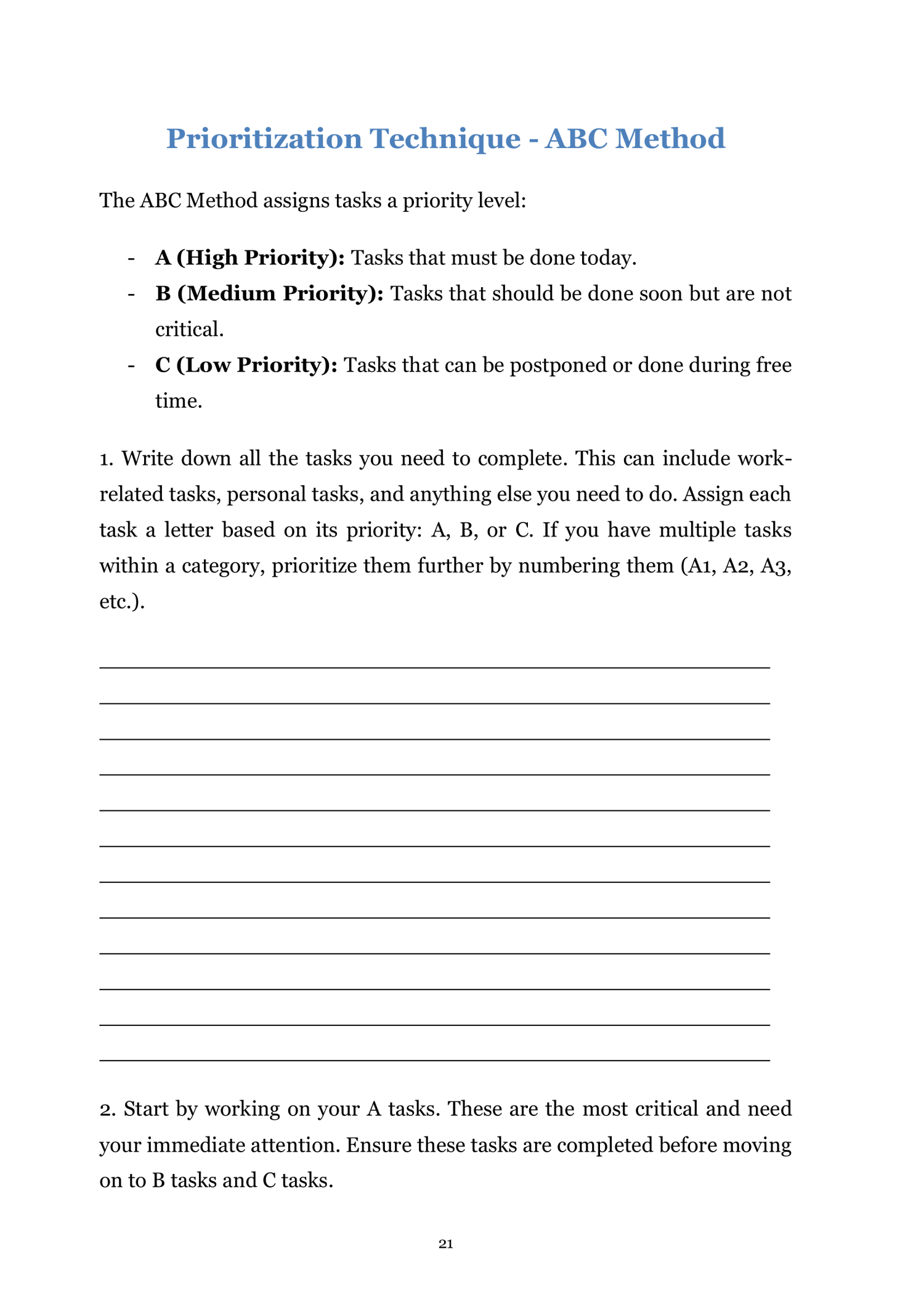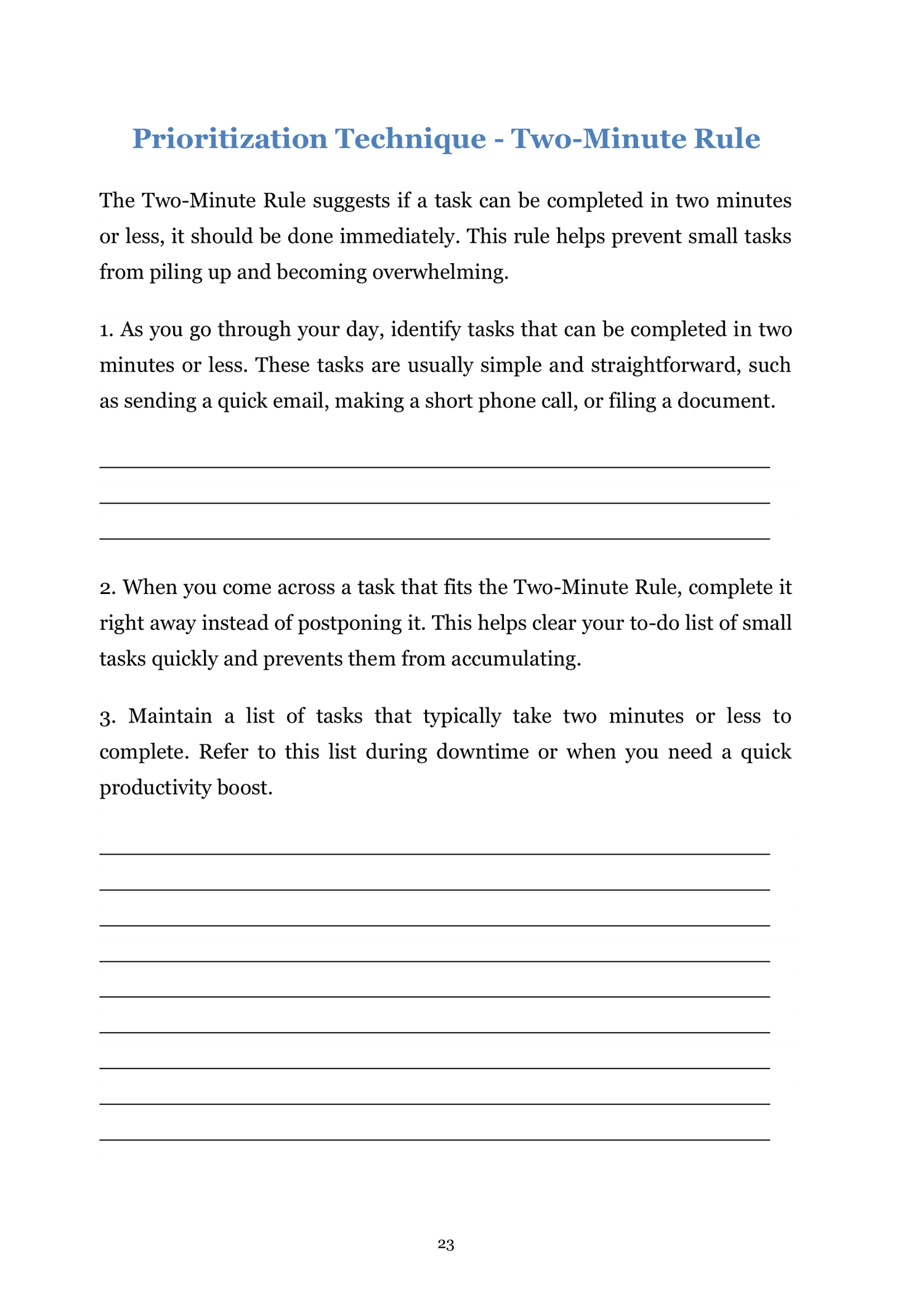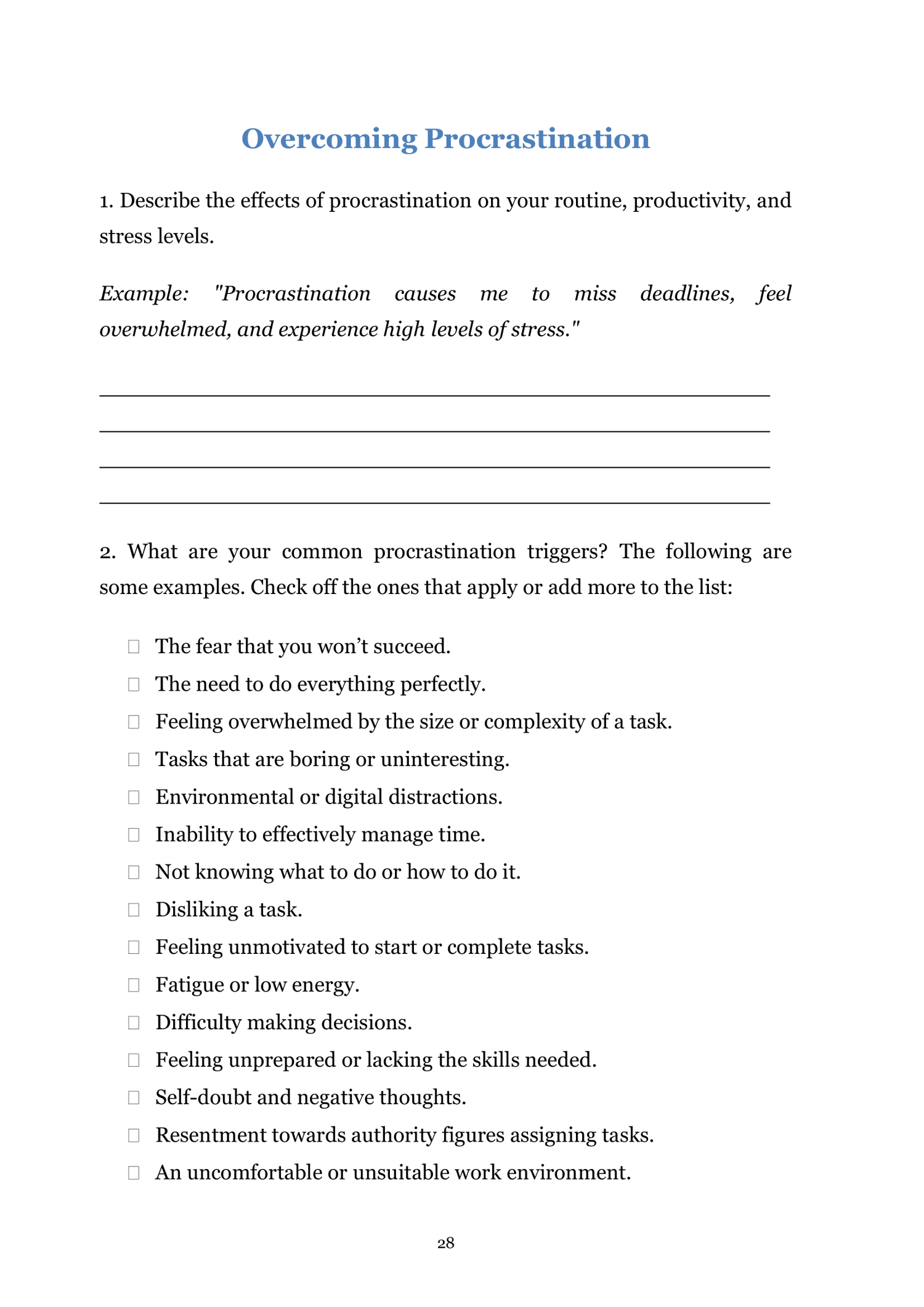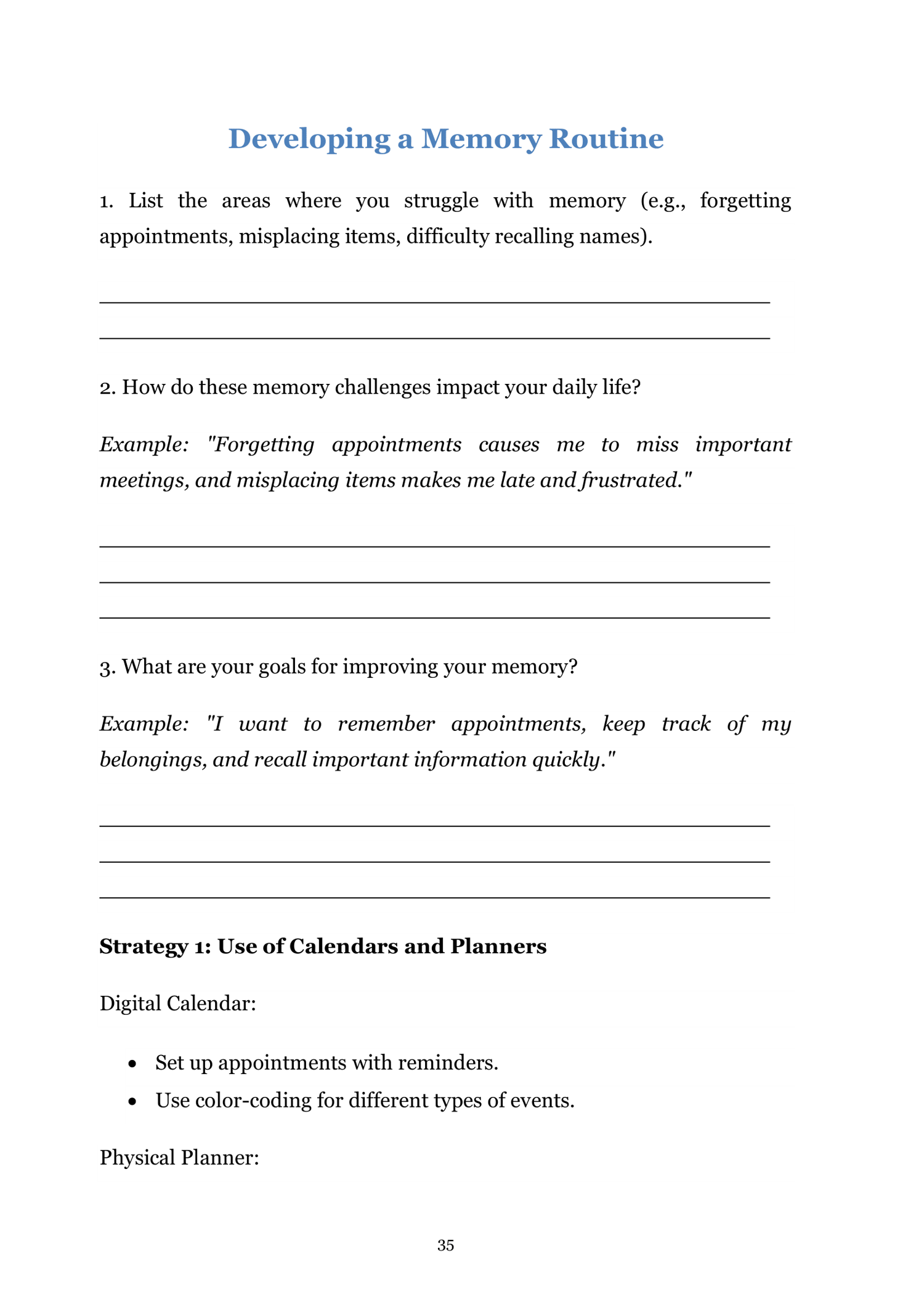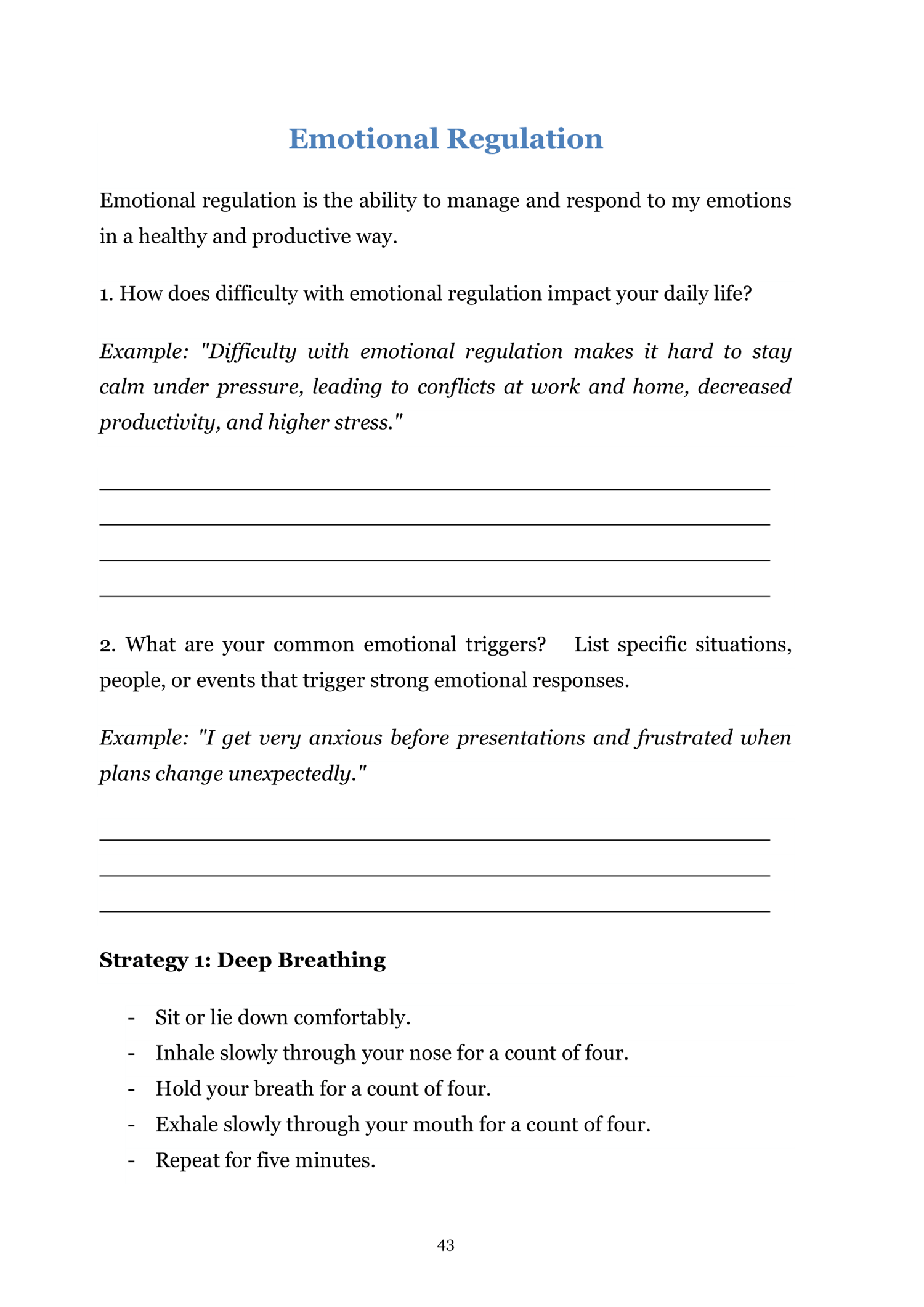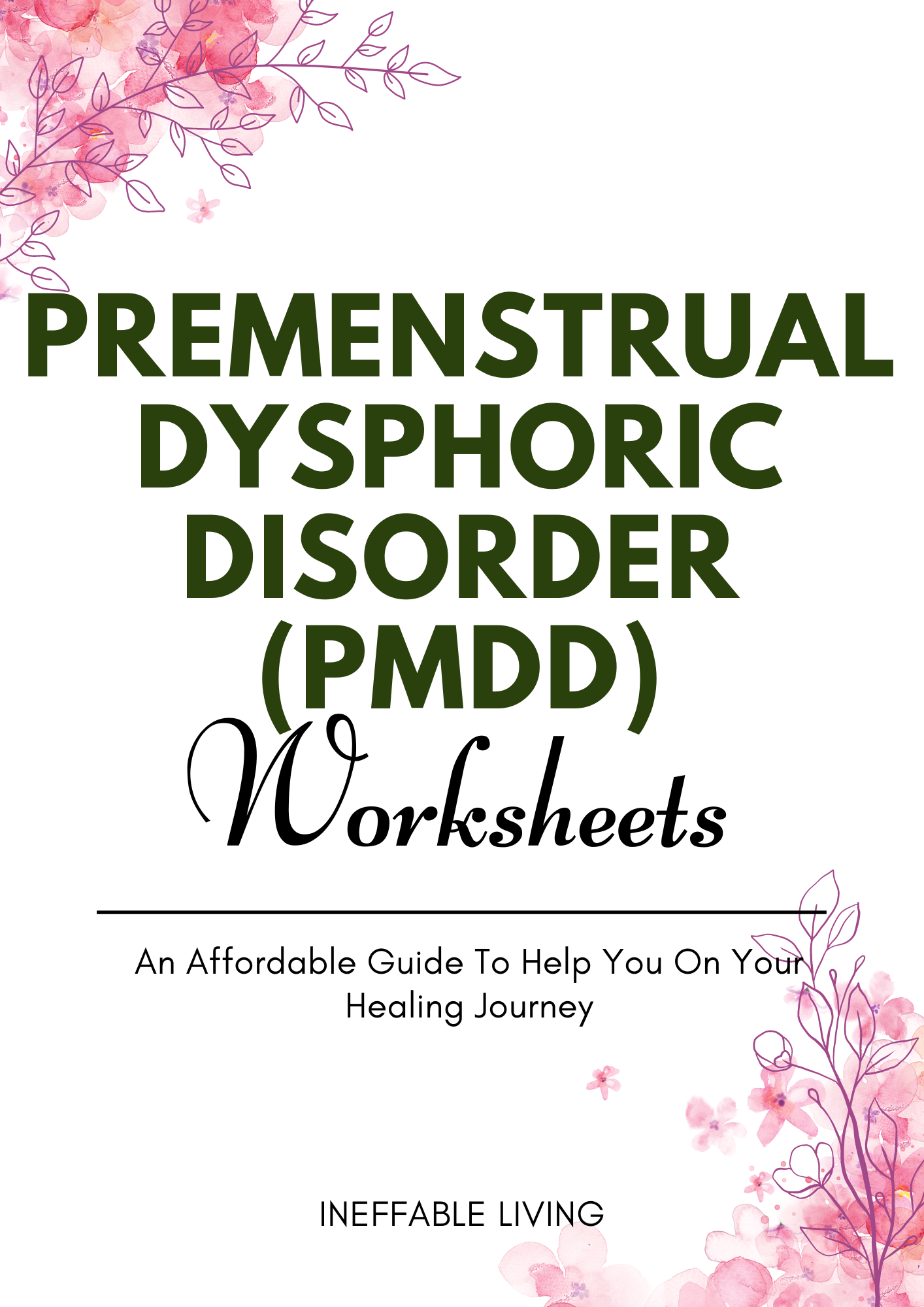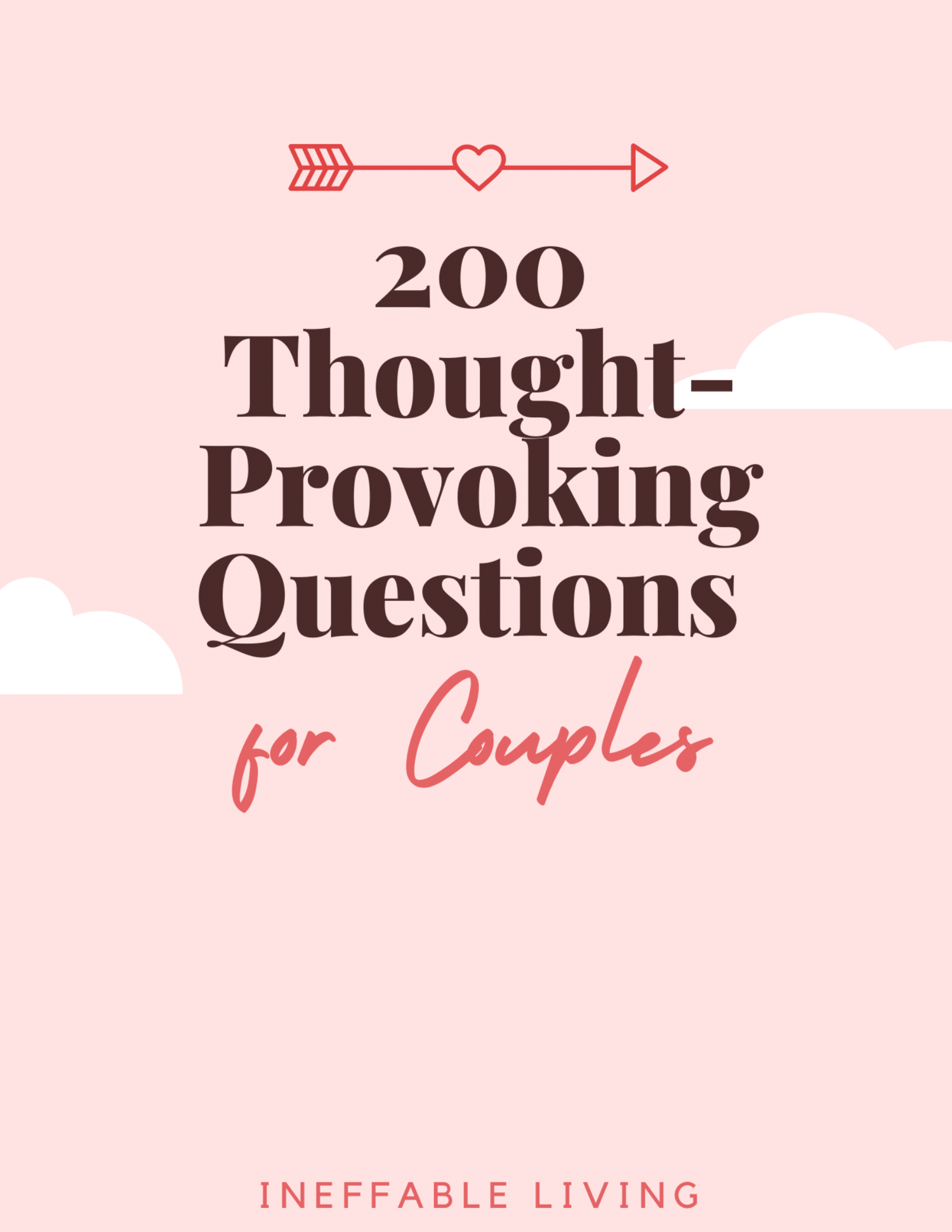Executive Dysfunction Worksheets
Get Entire Shop Bundle for 85% off
Get ADHD Bundle for 50% off
Are you struggling with planning, organizing, or managing time effectively?
Take Control of Your Executive Functioning Skills
Executive dysfunction can make daily tasks feel overwhelming and unmanageable.
Do you relate to any of the following?
- Do you often find yourself procrastinating even when you know you have important things to do?
- Do you feel overwhelmed by the thought of starting a new project or task?
- Do you struggle to keep your workspace or living area organized?
- Do you often lose track of important documents or items?
- Do you frequently underestimate how long tasks will take to complete?
- Do you find it challenging to decide which tasks are most important?
- Do you have trouble remembering instructions or details shortly after hearing them?
- Do you often need to re-read information or go over details multiple times?
- Do you make decisions quickly without considering the consequences?
- Do you find it hard to manage your emotions when things don’t go as planned?
If so, Executive Dysfunction Worksheets provide practical tools and strategies to help you regain control and improve your executive functioning skills.
(+ 60 pages of evidence based exercises and techniques)
What’s Included?
- Self-Assessment
- Symptoms of Executive Dysfunction
- Causes and Risk Factors
- Identifying Strengths and Weaknesses
- Setting SMART Goals
- Daily Planning Worksheet
- Prioritization Technique - Eisenhower Matrix
- Prioritization Technique - ABC Method
- Prioritization Technique - Pareto Principle (80/20 Rule)
- Prioritization Technique - Two-Minute Rule
- Prioritization Technique - Task Batching
- Prioritization Technique - MITs (Most Important Tasks)
- Time Management Technique - Time Blocking
- Time Management Technique - Pomodoro Technique
- Overcoming Procrastination
- Organizing Physical Spaces
- Digital Organization Techniques
- Developing a Memory Routine
- Using Mnemonics
- Note-Taking Strategies
- Emotional Regulation
- Cognitive Restructuring
- Step-by-Step Problem-Solving
- Decision-Making Models
- Implementing Solutions
- Exercises for Cognitive Flexibility
- Adapting to Change
- Understanding Social Cues
What Is Executive Dysfunction?
Executive dysfunction refers to difficulties in managing cognitive processes necessary for goal-directed behavior.
This can include challenges with planning, organization, time management, and problem-solving.
It can affect individuals in various aspects of their life, from academic and work performance to personal and social interactions.
Our worksheets are crafted to help you identify specific areas of difficulty and provide practical exercises to enhance your executive functioning skills.
Each worksheet is designed to address a particular aspect of executive dysfunction, helping you build effective strategies for improvement.
Executive dysfunction is not identified as a standalone disorder in the DSM-5 (Diagnostic and Statistical Manual of Mental Disorders, Fifth Edition). However, it is often associated with various conditions listed in the DSM-5. These conditions can impact executive functions such as planning, organization, time management, and emotional regulation.
1. Attention-Deficit/Hyperactivity Disorder (ADHD): ADHD is characterized by persistent patterns of inattention and/or hyperactivity-impulsivity that interfere with functioning or development.
Executive Dysfunction Symptoms:
- Difficulty sustaining attention
- Poor organizational skills
- Problems with time management
- Impulsivity and difficulty delaying gratification
2. Autism Spectrum Disorder (ASD): ASD is a developmental disorder characterized by persistent deficits in social communication and social interaction, along with restricted, repetitive patterns of behavior, interests, or activities.
Executive Dysfunction Symptoms:
- Difficulty with flexible thinking
- Problems with planning and organizing
- Challenges in shifting focus between tasks
- Difficulty managing time
3. Major Depressive Disorder: Major depressive disorder is characterized by a persistent feeling of sadness or a lack of interest in outside stimuli.
Executive Dysfunction Symptoms:
- Reduced ability to think or concentrate
- Indecisiveness
- Slowed thinking and reduced productivity
- Difficulty completing tasks
4. Bipolar Disorder: Bipolar disorder involves periods of mood episodes, including manic, hypomanic, and depressive episodes.
Executive Dysfunction Symptoms:
- Impaired judgment and decision-making
- Problems with impulse control
- Difficulty maintaining attention and focus
- Challenges with planning and goal-setting
5. Obsessive-Compulsive Disorder (OCD): OCD is characterized by the presence of obsessions (recurrent, persistent thoughts) and/or compulsions (repetitive behaviors or mental acts).
Executive Dysfunction Symptoms:
- Difficulty shifting focus away from obsessions
- Problems with decision-making and flexibility
- Time management issues due to compulsions
- Challenges in planning and organizing activities
While executive dysfunction itself is not a diagnosis in the DSM-5, it is important to recognize its symptoms within the context of related conditions.
If you or someone you know exhibits signs of executive dysfunction, consider seeking a comprehensive evaluation by a healthcare professional.


